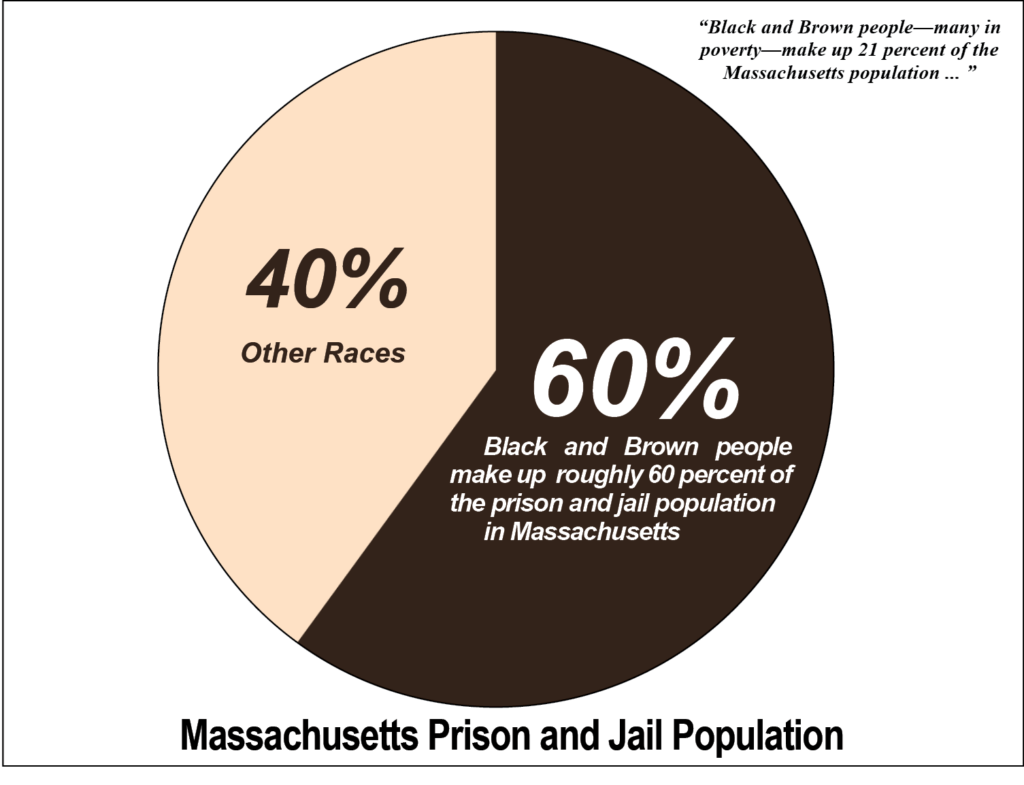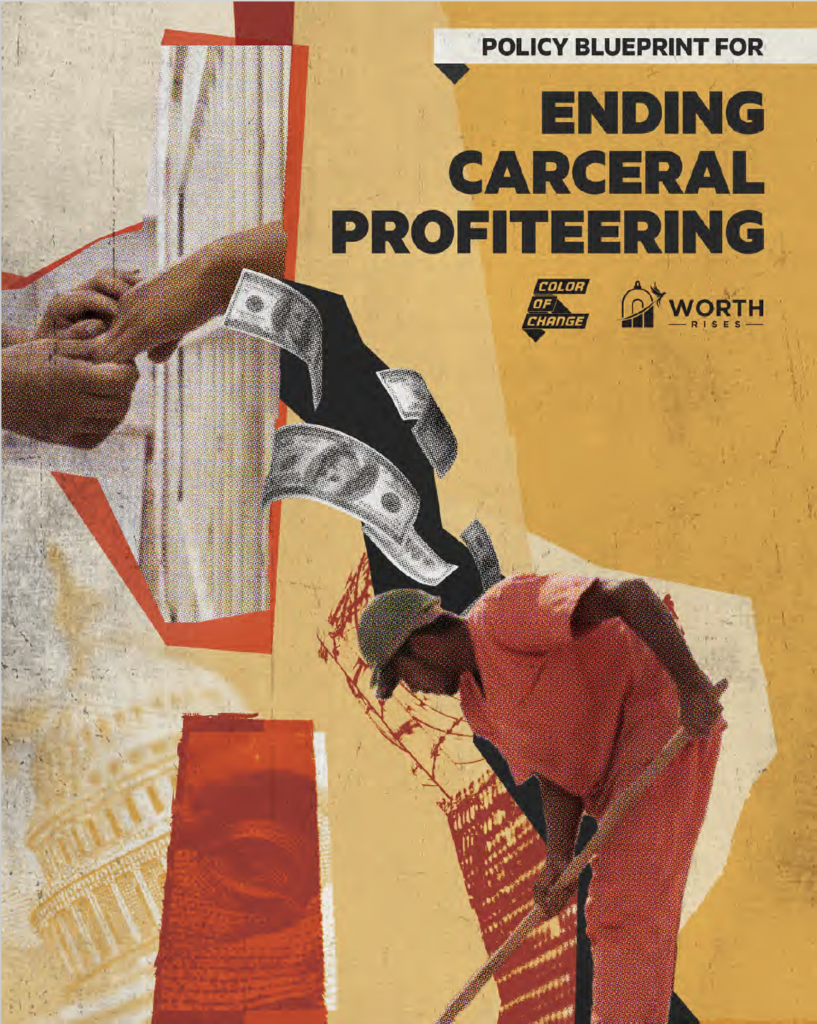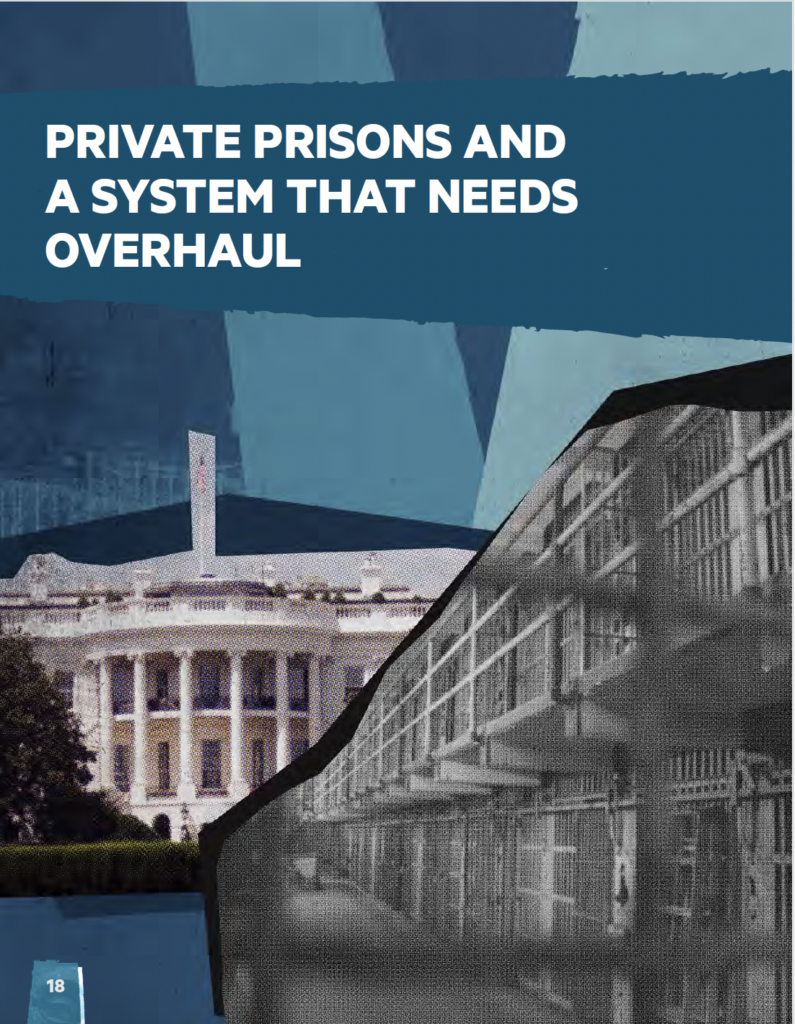By Nisa Islam Muhammad, Staff Writer
- September 26, 2023

Prison guards oversee prisoners working in one of the gardens at C.Paul Phelps Correctional Center in DeQuincy, LA. Over 30 acres are farmed at Phelps growing vegetables for the 942 inmates. (AP Photo/Karen Wink)
Crime pays, especially if you’re a for-profit contractor providing services at correctional institutions. From medical and mental health care to pharmaceutical services to transportation to food services and communications services, these services cost the incarcerated a “pretty penny.” Imagine working for $1.25 an hour or receiving only $20 a month for full-time work. Adding insult to injury are the high costs people locked up behind bars pay for essentials.
Joseph Keller was arrested when he was 14 years old. From that time until he was 29, he was in and out of correctional facilities in the D.C. area. He told The Final Call, “I didn’t have anybody to take care of me. I received monthly what they called the food stamp bag where if you didn’t have any money, they give you envelopes, peanut butter crackers, a pencil, an ink pen, some deodorant and some toothpaste.
When I got a job working as a barber, I could put money on my books, so I was able to buy good deodorant that didn’t burn my underarms. The free deodorant burns. I got paid $19 a month.”
Crime pays, especially if you’re a for-profit contractor providing services at correctional institutions. From medical and mental health care to pharmaceutical services to transportation to food services and communications services, these services cost the incarcerated a “pretty penny.” Imagine working for $1.25 an hour or receiving only $20 a month for full-time work. Adding insult to injury are the high costs people locked up behind bars pay for essentials.
Joseph Keller was arrested when he was 14 years old. From that time until he was 29, he was in and out of correctional facilities in the D.C. area. He told The Final Call, “I didn’t have anybody to take care of me. I received monthly what they called the food stamp bag where if you didn’t have any money, they give you envelopes, peanut butter crackers, a pencil, an ink pen, some deodorant and some toothpaste.
When I got a job working as a barber, I could put money on my books, so I was able to buy good deodorant that didn’t burn my underarms. The free deodorant burns. I got paid $19 a month.”

According to the African American Coalition Committee Black and Brown people make up roughly 60 percent of the prison and jail population in the state of Massachusetts. Graphic: The Final Call
“We had to pay prices similar to the prices in the stores outside. Deodorant inside is like maybe $4 or $5. You have to make sure that when you buy something, you buy what you need not what you want because with only $19 a month, that’s really almost half of your salary,” Mr. Keller explained.
“We had to pay prices similar to the prices in the stores outside. Deodorant inside is like maybe $4 or $5. You have to make sure that when you buy something, you buy what you need not what you want because with only $19 a month, that’s really almost half of your salary,” Mr. Keller explained.
Mr. Keller’s experience is typical. Inmates must pay for simple things like phone/video visits/email services, things people in free society take for granted. These costs add up, but more importantly, the profits add up.
Each year a mix of private corporations generate $80 billion in revenue by capitalizing on the needs of incarcerated people and their families. This exploitation, powered by more than 4,000 corporations engaged in a web of public–private partnerships, disproportionately targets and steals resources from Black communities, according to Worth Rises, the nation’s leading organization working to dismantle the prison industry.
“Prisons and jails are a business—one that is threatening our families, communities, and public safety,” said Bianca Tylek, executive director of Worth Rises. In conjunction with Color Of Change, they recently released a new policy blueprint calling for the end of carceral (prison) profiteering. “Over the last 40 years, the carceral system has grown into a vast network of corporations that use public-private partnerships to profit from the incarceration of our grandparents, parents, siblings, children, and other loved ones,” she continued.
“They have created a carceral crisis and collected the windfalls on the taxpayers’ dime while the rest of us suffered. This policy blueprint provides the clearest roadmap for fulfilling the promise of justice that the Biden-Harris administration made and many expect it to meet.”

A new report states that private corporations generate billions of dollars by exploiting incarcerated people and their families. Graphic: Worth Rises/Color of Change
“The Policy Blueprint for Ending Carceral Profiteering” details system-wide policy changes and administration actions within the following carceral sectors: healthcare, food and commissary, telecommunications, financial services, electronic monitoring, and labor.
Demands include:
• Eliminate the use of private profiteers from Federal Bureau of Prisons (BOP) facilities and the federal immigration detention system;
• Issue guidance to states to end profiteering at the state and local level and publicly support relevant legislation that eliminates private profiteering within the prison system;
“Every year, politicians choose to protect corporations as they gouge, fleece and scam incarcerated people and their families,” said Rashad Robinson, president of Color Of Change. “Government policies protect blatantly abusive profiteering instead of helping to end it, which enables corporations like Securus, Aramark, Corizon, and JPAY to use the criminal justice system as a cash cow, stealing billions of dollars from our communities.”
“People ask what structural racism is. This is it. Our blueprint provides a clear path of action for President Biden and all public officials who believe these financial attacks on our communities must end. We outline a clear set of steps for eliminating superfluous and inflated fees, revising the terms of government contracts with corporations to prevent gouging, and more.”
He added, “The incarcerated people and families that corporations have targeted with these profiteering practices know all their tricks, inside and out. This Blueprint reflects their unique knowledge about what is happening and how to stop it.”
“The Policy Blueprint for Ending Carceral Profiteering” details system-wide policy changes and administration actions within the following carceral sectors: healthcare, food and commissary, telecommunications, financial services, electronic monitoring, and labor.
Demands include:
• Eliminate the use of private profiteers from Federal Bureau of Prisons (BOP) facilities and the federal immigration detention system;
• Issue guidance to states to end profiteering at the state and local level and publicly support relevant legislation that eliminates private profiteering within the prison system;
“Every year, politicians choose to protect corporations as they gouge, fleece and scam incarcerated people and their families,” said Rashad Robinson, president of Color Of Change. “Government policies protect blatantly abusive profiteering instead of helping to end it, which enables corporations like Securus, Aramark, Corizon, and JPAY to use the criminal justice system as a cash cow, stealing billions of dollars from our communities.”
“People ask what structural racism is. This is it. Our blueprint provides a clear path of action for President Biden and all public officials who believe these financial attacks on our communities must end. We outline a clear set of steps for eliminating superfluous and inflated fees, revising the terms of government contracts with corporations to prevent gouging, and more.”
He added, “The incarcerated people and families that corporations have targeted with these profiteering practices know all their tricks, inside and out. This Blueprint reflects their unique knowledge about what is happening and how to stop it.”

Worth Rises and Color of Change, released a new policy blueprint calling for the end of carceral (prison) profiteering. Graphic: Worth Rises/Color of Change
The Policy Blueprint details how on a daily basis, families are faced with impossible decisions: pay rent and purchase groceries and life-saving medications, or make a phone call to speak with their incarcerated loved one this week? Many times these families have already lost a wage earner and can least afford to pay the high costs and fees that federal, state, and local agencies neglect to protect them from.
These costs are overwhelmingly borne by women, especially Black, Latino, and Indigenous women. The policy blueprint tells the plight of Maria Marshall, who, after spending $120 in just two weeks to maintain contact with both her teenage son and her ex-husband behind bars, was forced to make the difficult choice between the two, as she struggled to pay exorbitant phone rates and could only afford one of their accounts.
States are starting to take notice of these high costs that affect millions of families. In August, Massachusetts Governor Maura Healey signed the FY24 budget with a provision that requires state prisons and jails to offer free phone calls, video calls, and e-messaging to those incarcerated.
The provision, which goes into effect December 1, 2023, is estimated to save Massachusetts families more than $25 million annually. This win marks the culmination of over three years of tireless advocacy by incarcerated people, families, and allied advocates.
The provision makes Massachusetts the third state this year and fifth state overall to make prison calls free, following Minnesota and Colorado. California made prison calls free in 2022 and Connecticut in 2021. The new Massachusetts law is unique in that it applies to state prisons and jails.
Further, it requires video calls and e-messaging, where available, to be free in addition to phone calls, which only Connecticut had done previously. The law also prohibits the state from taking kickbacks from its prison telecom vendor and protects in-person visits for Massachusetts residents with incarcerated loved ones.
“It’s been an uphill battle to say the least, but one worth fighting for,” said William “7even” Ragland, chairman of the African American Coalition Committee (AACC), a coalition of men incarcerated at MCI-Norfolk focused on reforming the criminal legal system. “Black and Brown people—many in poverty—make up 21 percent of the Massachusetts population but roughly 60 percent of its prison and jail population. It is a monstrosity and repugnant.”
“It’s not surprising then that Black and Brown people spend the most on phone calls, video calls, and e-messages with their incarcerated loved ones, to the tune of $25 million annually. Given our low prison wages, our families are often left with the bill, deciding whether to put money on their loved ones’ phone accounts or pay their rent, put gas in their cars, or put food on their tables.”
Cedric 3X Cal represents the Nation of Islam Prison Ministry in Illinois. “In the Illinois prison system, the average cost for an inmate is $1,000 a year for commissary expenses. That’s like $100 a month. The sad thing is most have no salary. Salaried jobs are very limited and those with jobs may get 35 cents an hour, or $30 a month for a job.
A higher-paying industry job may get $100 a month. Poor people in prison have to rely on the charity of people on the outside that care for you in order to survive in prison,” he told The Final Call.
“The food has little if any nutritional value. You’re depending on processed food at the commissary to balance out what you’re getting from the cafeteria. That’s where the costs come in. We get the same brand name things in free society at many of the same costs as free society,” said Cedric 3X.
“It’s all about profit for prisons. That’s what Minister Farrakhan spoke about when he revealed the conspiracy (of) putting prisons on Wall Street for investment,” he said, referring to the Honorable Minister Louis Farrakhan of the Nation of Islam. “It’s not just about putting bodies in the prisons. It’s also about the industries connected to the prisons that generate so much profit. They are profiting off crime on every level,” Cedric 3X added.
During an #AskFarrakhan Social Media Town Hall held in 2012, Minister Farrakhan explained that prison is “big business.”
“You know, the prison industrial complex is now on the Stock Market, and the “privatizing” of the prison industry is going on as we speak! Therefore, just as people don’t build hotels if you don’t expect occupancy: People don’t build prisons unless you expect people to fill those prisons,” said Minister Farrakhan.
The Policy Blueprint details how on a daily basis, families are faced with impossible decisions: pay rent and purchase groceries and life-saving medications, or make a phone call to speak with their incarcerated loved one this week? Many times these families have already lost a wage earner and can least afford to pay the high costs and fees that federal, state, and local agencies neglect to protect them from.
These costs are overwhelmingly borne by women, especially Black, Latino, and Indigenous women. The policy blueprint tells the plight of Maria Marshall, who, after spending $120 in just two weeks to maintain contact with both her teenage son and her ex-husband behind bars, was forced to make the difficult choice between the two, as she struggled to pay exorbitant phone rates and could only afford one of their accounts.
States are starting to take notice of these high costs that affect millions of families. In August, Massachusetts Governor Maura Healey signed the FY24 budget with a provision that requires state prisons and jails to offer free phone calls, video calls, and e-messaging to those incarcerated.
The provision, which goes into effect December 1, 2023, is estimated to save Massachusetts families more than $25 million annually. This win marks the culmination of over three years of tireless advocacy by incarcerated people, families, and allied advocates.
The provision makes Massachusetts the third state this year and fifth state overall to make prison calls free, following Minnesota and Colorado. California made prison calls free in 2022 and Connecticut in 2021. The new Massachusetts law is unique in that it applies to state prisons and jails.
Further, it requires video calls and e-messaging, where available, to be free in addition to phone calls, which only Connecticut had done previously. The law also prohibits the state from taking kickbacks from its prison telecom vendor and protects in-person visits for Massachusetts residents with incarcerated loved ones.
“It’s been an uphill battle to say the least, but one worth fighting for,” said William “7even” Ragland, chairman of the African American Coalition Committee (AACC), a coalition of men incarcerated at MCI-Norfolk focused on reforming the criminal legal system. “Black and Brown people—many in poverty—make up 21 percent of the Massachusetts population but roughly 60 percent of its prison and jail population. It is a monstrosity and repugnant.”
“It’s not surprising then that Black and Brown people spend the most on phone calls, video calls, and e-messages with their incarcerated loved ones, to the tune of $25 million annually. Given our low prison wages, our families are often left with the bill, deciding whether to put money on their loved ones’ phone accounts or pay their rent, put gas in their cars, or put food on their tables.”
Cedric 3X Cal represents the Nation of Islam Prison Ministry in Illinois. “In the Illinois prison system, the average cost for an inmate is $1,000 a year for commissary expenses. That’s like $100 a month. The sad thing is most have no salary. Salaried jobs are very limited and those with jobs may get 35 cents an hour, or $30 a month for a job.
A higher-paying industry job may get $100 a month. Poor people in prison have to rely on the charity of people on the outside that care for you in order to survive in prison,” he told The Final Call.
“The food has little if any nutritional value. You’re depending on processed food at the commissary to balance out what you’re getting from the cafeteria. That’s where the costs come in. We get the same brand name things in free society at many of the same costs as free society,” said Cedric 3X.
“It’s all about profit for prisons. That’s what Minister Farrakhan spoke about when he revealed the conspiracy (of) putting prisons on Wall Street for investment,” he said, referring to the Honorable Minister Louis Farrakhan of the Nation of Islam. “It’s not just about putting bodies in the prisons. It’s also about the industries connected to the prisons that generate so much profit. They are profiting off crime on every level,” Cedric 3X added.
During an #AskFarrakhan Social Media Town Hall held in 2012, Minister Farrakhan explained that prison is “big business.”
“You know, the prison industrial complex is now on the Stock Market, and the “privatizing” of the prison industry is going on as we speak! Therefore, just as people don’t build hotels if you don’t expect occupancy: People don’t build prisons unless you expect people to fill those prisons,” said Minister Farrakhan.
No comments:
Post a Comment